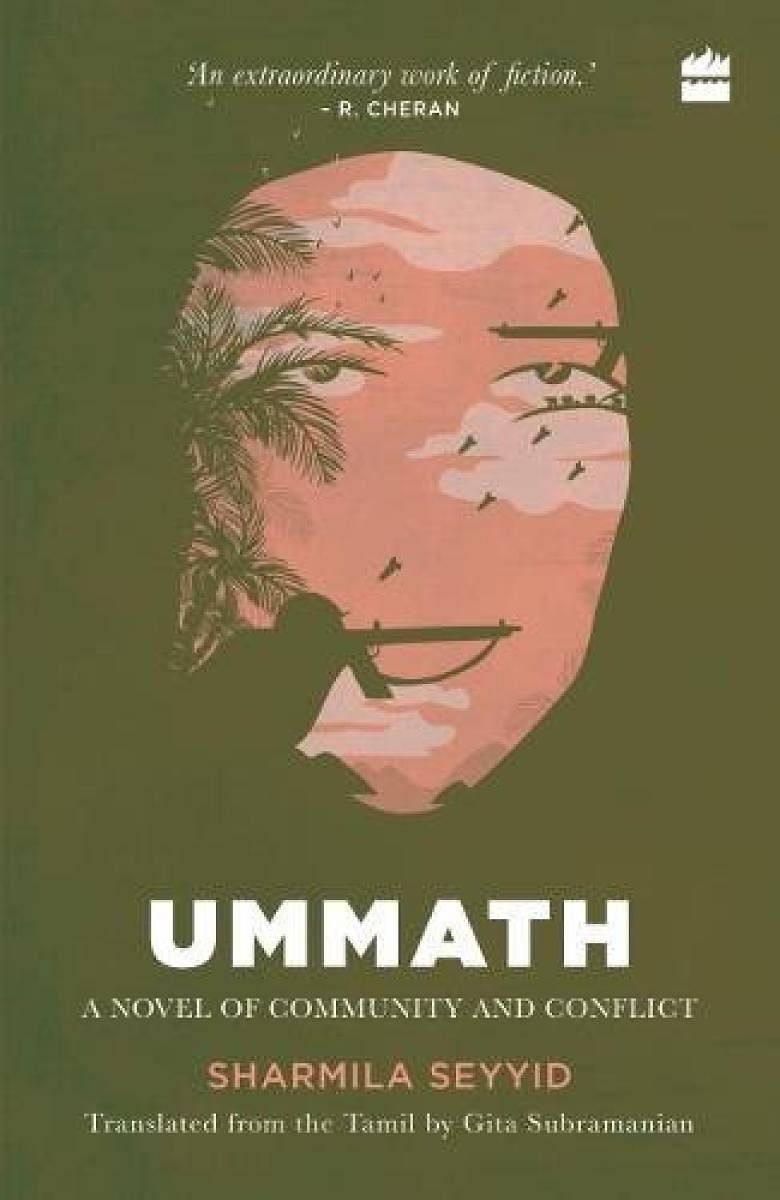
"In a war, there are no winners, only losers.”
The book Ummat is spawned by the brutal civil war in Sri Lanka, waged between the LTTE and the Sinhalese government. It rocks Tamil Nadu, and its tremors are heard as far as Delhi, but it is Sri Lanka, the idyllic paradise, that is torn to shreds by the war, leaving carnage and bloodbath in its wake.
It starts with “justifiable objectives” but soon veers out of control, and both sides are guilty of violating human rights that bring untold misery all around.
The Tamil Movement blocks all exits to save itself, using the civilian population as a human shield and the Sri Lankan army blithely absolves itself of all responsibility and bombs indiscriminately. In a forceful voice devoid of sentimentality, Sharmila Seyyid arrays the facts for the readers.
The war is over, the maimed and the half-living slowly limping back to life. An uneasy Peace Treaty is declared, then grossly ignored, and the bombing begins again. By chance or destiny, three disparate women meet and their lives get intertwined. Three women who were not specially marked for heroism, but life just happened to them.
Yoga is the middle child of a poor, labour family. A sensitive young thing with a bright mind, she loves school but is singled out by her parents to work as a maid to a rich family in a far-off place, to help her escape the fighting that has suddenly broken out.
She is heartsick and misses her family and school. Her tender soul shrivels at the harshness of treatment meted out to her by her employer. And it is a childish determination to die and end her troubles that walks her straight into the LTTE camp, which is now reduced to enlisting women and children. She ends up with the selfsame fate her parents had hoped to avoid for her. The war takes its toll.
Yoga loses a leg and is sent to a repatriation camp. When she finally returns home as a young adult, the tragedy begins all over again. She had fought a war that was supposedly going to win Tamils their freedom, but on her return, she is treated as a pariah for her role in the war and is shunned. In an unloving family, she yearns for love. Finally, it is the semblance of love that leads to a horrifying act that puts an end to her piteous existence.
Theivanai is also a Tamil Sri Lankan, and an ex-cadre of the LTTE, like Yoga. A youthful sense of injustice against her people makes her blood boil and impels her to join the LTTE. Like Yoga, she too loses a limb. The twist to her story lies in her falling in love with the very enemy she is battling.
Thawakkul’s experience of the horrors of war is second-hand. It comes through her interaction as a social worker with the destitutes. What affects her deeply is the helplessness and misery that swamp women when their menfolk are killed in action or tortured to death.
She belongs to the Moslem community that experiences injustice at the hands of LTTE, like the LTTE under the Sri Lankan government. But, Thawakkul’s heart is a marvelous spreading tree gathering the needy to her. She sees and understands and rises above all pettiness to help where it is required.
Still, as clear-eyed as she is, she has overlooked the strictures of society, its moral custodians. Her conduct to her is a clear understanding between her and Allah. If only things were so simple. She has reckoned without the bullies who bestow on themselves the divine right to show women their place in society. Her association with the Sri Lankan authorities is an eyesore to them. Next, it is her harbouring of ex-Tamil Tigers. But at its core, it is her sense of freedom to move and act as she thinks fit, in short, to assume a role that is the prerogative of men, that rubs them the wrong way. Accusations are hurled at her and there are veiled threats.
Then the threats start to become ugly. Neighbours are miserably passive and there is a clear dearth of civil courage. Thawakkul is forced to stop because her kind of goodness is far beyond the ken of a small-spirited, mean society. The enemy outside is dangerous but it is the enemy within who is treacherous.
Sharmila Seyyid excels in plain speak. The narration is straightforward, the voice authentic. Like her protagonist Thawakkul, Sharmila Seyyid, a social activist was hounded for her liberal views and forced to flee her country. She knows what she is talking about.
If the civil war in our neighbouring country was something that happened in the margins of your consciousness, this is a good book to engage with it.